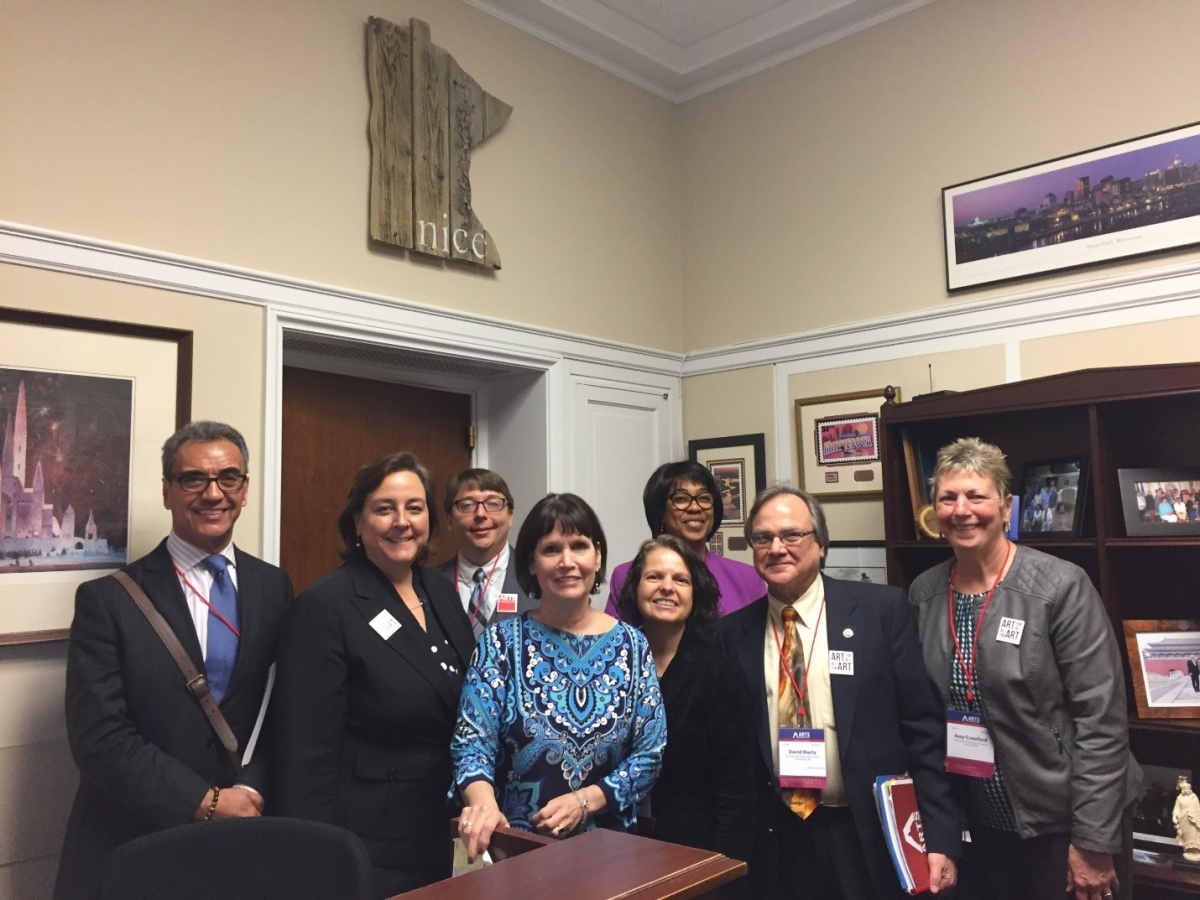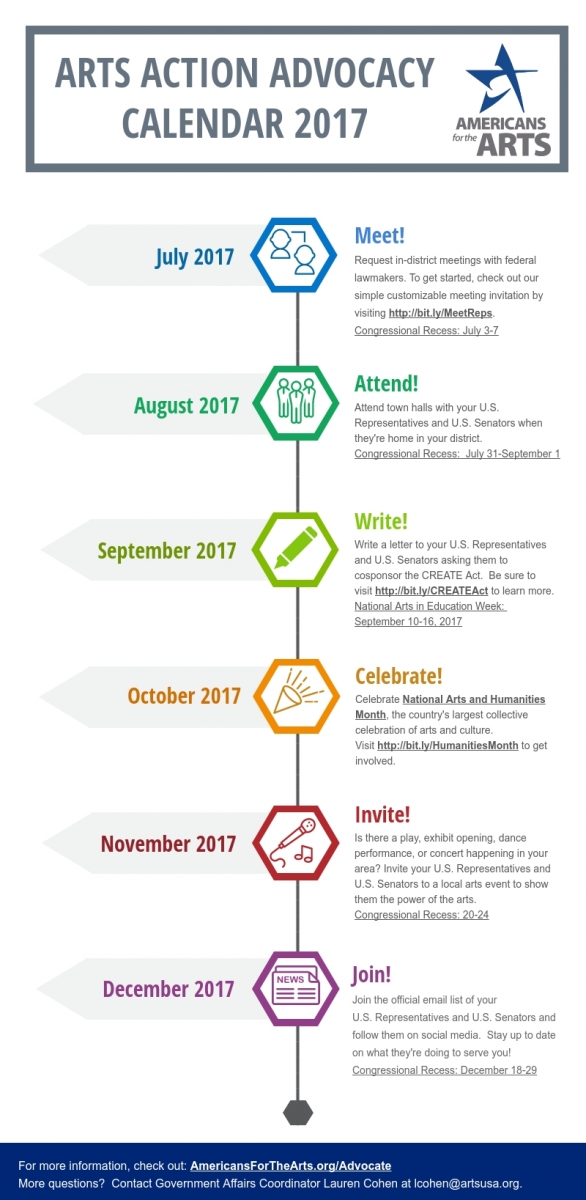Why In-District Advocacy Matters: An Insider’s Perspective
Posted by Aug 11, 2017

Lauren Cohen
Prior to joining the Government Affairs team at Americans for the Arts, I worked for over two years for a Member of Congress in the U.S. House of Representatives. I juggled three distinct roles as the legislative aide for arts and humanities policy, the legislative correspondent, and the assistant scheduler. It was in this fast-paced, high-energy environment where I cut my teeth in Washington and learned the ins-and-outs of tracking federal legislation. I also learned how lobbyists and grassroots advocates alike bring their message to legislators in a clear and effective way both on Capitol Hill and at home in the district.
Working for a Representative from my home state of Tennessee was immensely rewarding, particularly because my office placed high priority on constituent services. If constituents took the time to schedule a meeting to discuss their concerns, chances were high that the Representative would do what he could to co-sponsor the bill in question, write a letter of inquiry, or make a speech on the House floor. However, Capitol Hill isn’t the only place to connect with your legislator. Meetings right where constituents live and work—at home in the district—can have just as much impact.

In-district meetings are incredibly effective, but are too often left out of the federal advocacy equation. Here are three reasons why you should make an appointment with your U.S. Representative or U.S. Senator in their home office:
- Constituents who meet with a federal legislator in the district often have longer, more relaxed meetings. When federal legislators are in Washington, D.C., their daily schedules are packed with hearings, votes, interviews, briefings, and constituent appointments. Meetings are cut short when a buzzer goes off signaling a vote, and legislators hastily say their goodbyes as they dash out the door toward the Capitol. In the district, however, meetings tend to have a more leisurely pace. Constituents can connect with their elected official on a more personal level because they’re in a comfortable setting with familiar surroundings. Chances are, the legislator you’re meeting with is more relaxed at home too. Want to find out who represents you in Congress? Just click here!
- U.S. Representatives and U.S. Senators are still working during Congressional recesses—and so are their staffs. Contrary to popular belief, legislators aren’t taking month-long vacations during recesses. They’re in their home states and districts hosting town hall meetings, traveling to local schools and businesses, and connecting with the people who elected them. August is traditionally a district work month, but shorter week-long recesses fall throughout the year. When I worked for a Member of Congress, the Washington, D.C. staff would get a daily call from the Representative during recess periods about the meetings he’d had with constituents. He might have met with a group in his district office, seen them at the grocery store, or gotten a comment at a town hall meeting—regardless of the setting, he wanted to follow up on their concerns and requests. Legislative staff can submit co-sponsor requests, draft letters of inquiry, or get additional information on pending bills during recess periods. Even if votes and hearings aren’t happening, the legislative wheels are still moving.
- Constituents really do have the power to effect change. The Congressional Management Foundation recently reported that 94% of surveyed congressional staff said that in-person visits from constituents in the district office “would have some or a lot of influence on an undecided lawmaker.” Remember, elected officials want to represent their constituents well in Washington, and they need to hear from you on how to do that.
 So now that you’re convinced that you should call up your U.S. Representative or U.S. Senator’s office for a meeting next time they’re home in the district, check out our handy guide on how to make your time with them successful. You’ll be walking out of the meeting having shared your story, the data, and the impact of the arts in your community while making a personal connection with your legislator in no time.
So now that you’re convinced that you should call up your U.S. Representative or U.S. Senator’s office for a meeting next time they’re home in the district, check out our handy guide on how to make your time with them successful. You’ll be walking out of the meeting having shared your story, the data, and the impact of the arts in your community while making a personal connection with your legislator in no time.
Looking for more ways to get involved this year? Use our Arts Action Advocacy calendar (download full size here) to find other simple ways you can take action from home the rest of the year!
Lauren Cohen is a member of Americans for the Arts.





